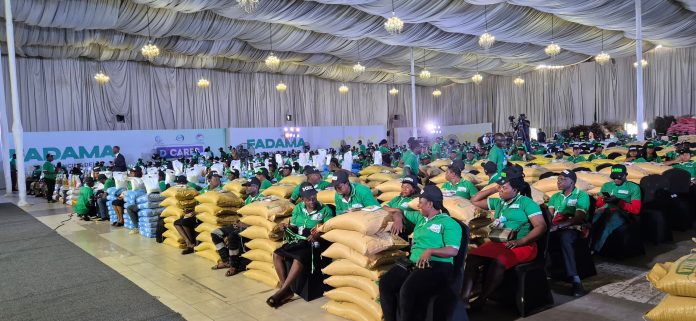GOVERNOR Sheriff Oborevwori’s recent initiative to empower 6,020 farmers with agricultural inputs in Delta State is a significant stride towards enhancing food security and promoting agricultural productivity. The disbursement of these inputs, which took place under Result Area 2 of the FADAMA initiative, is part of a broader strategy aimed at bolstering the resilience and economic stability of communities within Delta State. This move not only speaks of the governor’s commitment to food security but also demonstrates his understanding of the vital role that agriculture plays in the state’s economy.
Delta State, like many other states in the country, faces the looming challenge of food insecurity. This insecurity is fueled by a combination of factors including widespread insecurity, insufficient government support for farmers, and a declining interest in agriculture among the youth. The empowerment of these farmers, therefore, serves as a direct response to these issues, providing a platform for growth and sustainability in the agricultural sector.
Governor Oborevwori’s action is commendable because it targets over 6,000 hardworking farmers who are at the heart of food production in Delta State. By supplying them with essential inputs such as fertilizers, seeds, and other resources, the governor is laying the groundwork for an increase in agricultural output, which will not only meet the food needs of the state but also contribute to the overall growth of the local economy. Farmers, if given the right tools and support, can significantly transform the food landscape in Delta, reducing the reliance on other states for basic food items and potentially positioning Delta as a key player in Nigeria’s agricultural sector.
However, while this empowerment is a positive step, it also highlights the need for a more robust and long-term commitment to agriculture in Delta State. The government’s efforts should not stop at disbursing inputs. There is a need for an improved budgetary allocation to the agricultural sector. This increased funding would ensure that more farmers, whether large-scale or micro-scale, can benefit from government support. Furthermore, one of the most effective ways to strengthen the agricultural community is by encouraging farmers to form or join associations and cooperative unions. These groups can act as vehicles through which farmers can access government support, loans, and subsidies at little or no cost.
Subsidizing essential farming tools such as fertilizers, tractors, and other mechanized equipment is another crucial area the government must focus on. Mechanization is key to modern farming, and without access to affordable equipment, many farmers will remain stuck in subsistence farming, unable to produce at the levels needed to sustain the state’s food requirements. By providing subsidies, the government can help ease the financial burden on farmers, allowing them to invest more in their farms and ultimately increase their yield.
There is also an urgent need to create policies that will encourage more Deltans to venture into agriculture. If at least six per cent of Delta’s population, estimated to be around six million people, were involved in farming, the state would see a drastic reduction in food insecurity. This influx of new farmers, especially younger individuals, could breathe new life into the sector, introducing modern farming techniques, innovation, and entrepreneurship into agriculture. This would ensure that farming is seen as a viable and lucrative career path, not just a last resort.
Delta State is uniquely positioned to excel in agriculture, particularly in the cultivation of crops such as cassava, oil palm, and yams. These crops have historically thrived in the state, and with the right investment and support, Delta could leverage its comparative advantage to not only achieve self-sufficiency but also to become a major exporter of these products. This would bring significant economic benefits to the state, providing a new stream of revenue and creating jobs for many Deltans.
The era of relying on other states to feed Delta should be left behind.


